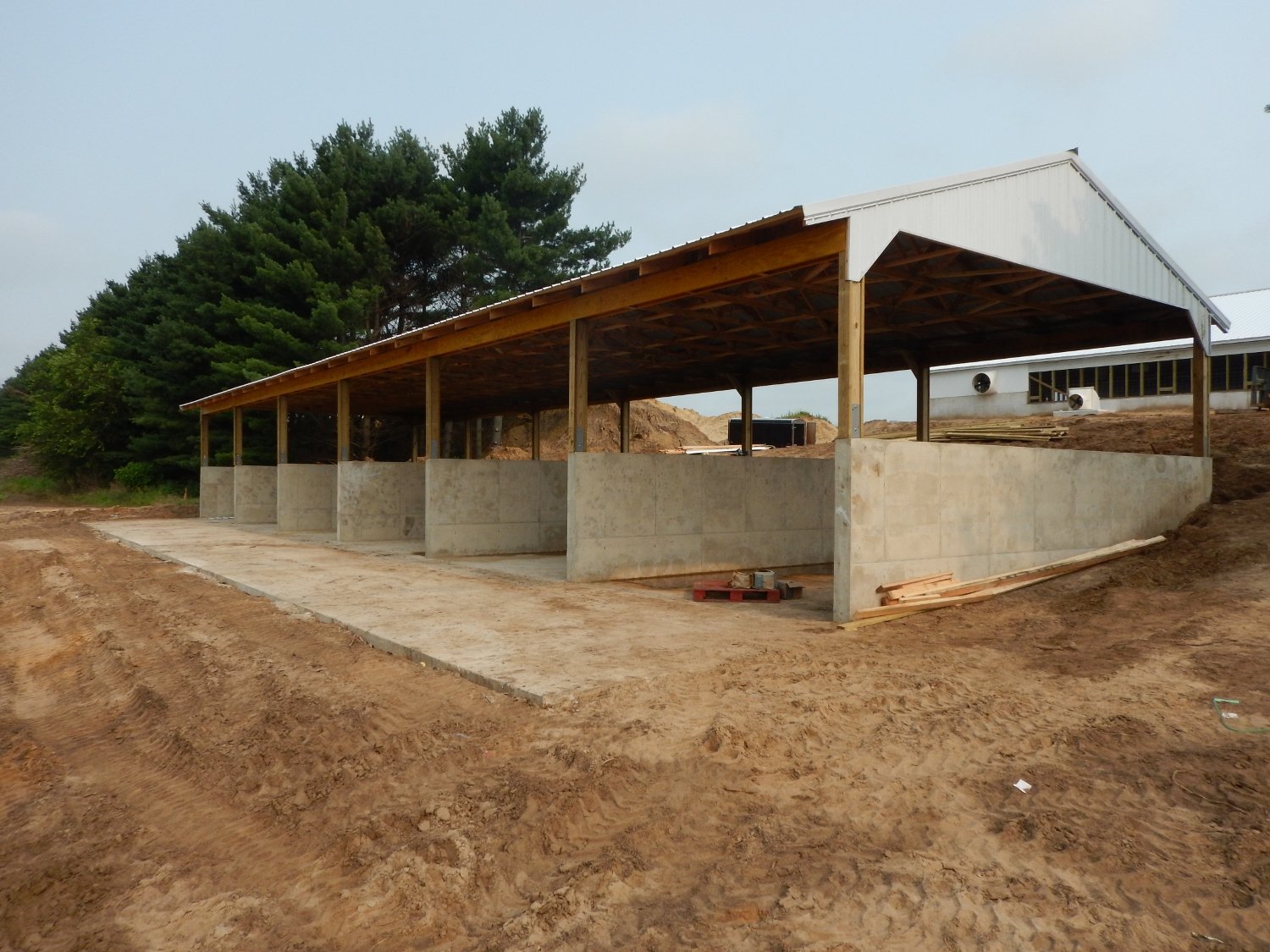Manure Storage Structures Agrichemical Handling Facilities
Description
Manure storage structures hold livestock manure until it can be applied to fields or transported. The structures prevent nutrient loss through runoff and protect waterways. Storage of manure for field application can also reduce synthetic fertilizer costs. If manure is transported to another farm, the farmer should clean up any spills and scrub equipment before or after use at a different facility.
Agrichemical handling facilities have tightly sealed walls and floors to hold agrichemicals used on the farm. These facilities are constructed to prevent runoff or leaks into the surrounding environment by preventing chemicals stored, mixed, or loaded into equipment from entering the air, soil, or waterways.
Though they may provide benefits to a farmer, the expense and permanence of the structures may mean that the landowner should assume the cost of these projects.
Planning Considerations
If this is a new structure, who will be responsible for construction costs?
Is it being built exclusively for this tenant?
Sample Lease Provision: Landowner shall be responsible for the costs of construction of manure and/ or agrichemical structures. Tenant shall be responsible for any damage caused by Tenant, his agents, or employees to farm structures. Tenant, his agents, and employees must have current certification for handling and applying all chemicals used on the farm. Tenant may store manure and/or agrichemicals in farm structures. Tenant shall apply manure in compliance with all state laws, regulations, and policies. In no instance shall Landowner be held liable for damage caused by the storage, use, spillage or application of manure or agrichemicals stored by Tenant in farm structures.

